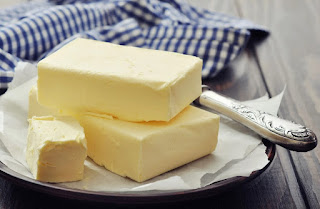nutritional facts about butter
nutritional facts about butter
Butter is a delicious and versatile ingredient that has been a staple in kitchens around the world for centuries. Made from milk or cream, it is a source of important nutrients that can benefit your health when consumed in moderation. In this article, we'll explore the nutritional facts about butter to help you make informed decisions about including it in your diet.
Calories and Macronutrients:
One tablespoon of butter (14 grams) contains approximately 100 calories, 11 grams of fat, and 0.1 grams of protein. It also contains a small amount of carbohydrates and sugar. The fat in butter is primarily saturated fat, which is considered less healthy than unsaturated fat. However, it is important to note that recent research suggests that not all saturated fats are created equal, and some may have health benefits.
Vitamins and Minerals:
Butter is a good source of vitamin A, which is important for healthy vision, immune function, and skin health. It also contains small amounts of vitamin D, vitamin E, and vitamin K, which are all important for overall health. In addition, butter is a good source of calcium, which is essential for healthy bones and teeth.
Cholesterol:
Butter is a source of dietary cholesterol, with one tablespoon containing approximately 31 milligrams. This is a relatively small amount compared to other sources of dietary cholesterol, such as egg yolks or organ meats. However, if you have high cholesterol or a history of heart disease, it is important to limit your intake of dietary cholesterol.
Omega-3 Fatty Acids:
Butter is not a significant source of omega-3 fatty acids, which are important for heart health and brain function. If you are looking to increase your omega-3 intake, it is better to focus on fatty fish, flaxseeds, chia seeds, or other plant-based sources.
Salt Content:
Some varieties of butter can be high in sodium, which can contribute to high blood pressure and other health issues. If you are concerned about your sodium intake, look for unsalted butter or choose a lower-sodium option.
Final Thoughts:
Butter can be a delicious and nutritious addition to your diet when consumed in moderation. While it is high in calories and saturated fat, it is also a good source of important vitamins and minerals. If you are concerned about your overall diet or have specific health concerns, it is important to consult with a healthcare professional to determine the best approach for you.
